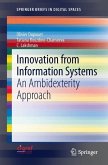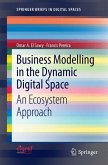Given rising electricity consumption, coupled with finite resources, and a growing awareness surrounding sustainable energy, ICT-enabled electrical networks such as smart grids are increasingly being deployed by energy companies. One aspect of smart grids is smart meter technology (SMT), which are sophisticated digital electrical meters, having the potential to increase energy efficiency in both residential and industrial sectors.
However, a challenge to SMT-implementation in residential settings has been its successful adoption by consumers. As many cases in the US, and other parts of the world highlight, such implementation projects have run into resistance from the consumers. Despite these challenges, little research has been conducted on this topic.
This study is one of the first that attempts to fill that void by empirically examining the antecedents of SMT adoption amongst potential customers and a group of SMT users. Specifically, this study developed a model surrounding consumers' intention to adopt and use SMT, by drawing on theories of adoption and motivational psychology and also by including a set of context-specific variables.
However, a challenge to SMT-implementation in residential settings has been its successful adoption by consumers. As many cases in the US, and other parts of the world highlight, such implementation projects have run into resistance from the consumers. Despite these challenges, little research has been conducted on this topic.
This study is one of the first that attempts to fill that void by empirically examining the antecedents of SMT adoption amongst potential customers and a group of SMT users. Specifically, this study developed a model surrounding consumers' intention to adopt and use SMT, by drawing on theories of adoption and motivational psychology and also by including a set of context-specific variables.








